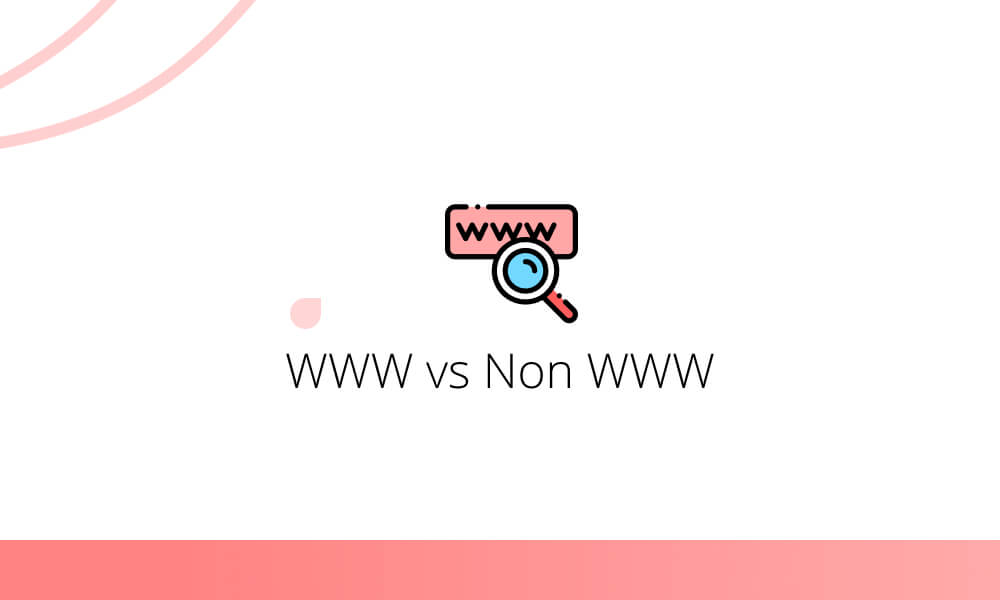Since you are reading this, you might be aware of some websites using www.
Technical
A non-www domain is usually referred to as a naked domain. And, www domains can act as a hostname and can have several subdomains attached to it.
Nowadays browsers just hide the www part, unless it has a subdomain.
So, from a practical perspective, there is no difference whatsoever between a www and a non-www URL. It is just a personal or brand preference.
However, from a technical perspective, there is a slight difference between the two. Websites with a www URL can adjust to DNS and restrict the cookies when utilizing other domains. For a non-www domain, there are no such technical benefits.
Also, search engines look at www and non-www as two different websites, which intern creates a duplicate content issue and SEO goes for a toss.
WWW Pros
This has been the standard way to begin a website URL for many years and is very popular. Another benefit of a www URL is that it lets you set cookies for your specific www subdomain.
Adding a www prefix allows you to restrict your cookies to your root domain so that there aren’t any additional cookies that get passed down to other subdomains. Therefore, for a website with multiple subdomains, it is good to use www URLs so that you can restrict cookies for each. One more advantage is it’s flexible with DNS.
WWW Cons
The only con is that eventually, www domains might just become obsolete as most people don’t bother to type www while searching for a website anyway. Even browsers are hiding it nowadays.
Non-WWW Pros
If you don’t need to restrict your cookies, then you don’t even need to consider a www domain and can opt for a non-www one.
Non-WWW Cons
There aren’t many cons in the general sense, instead, it’s the lack of benefits that www domains provide. There is no option to restrict cookies just to the root domain in case of non-www URLs. Also, non-www domains don’t have CNAME records, so you can’t redirect traffic from one server to another. This functionality is useful when one server gets overloaded, and you need to redirect traffic to a healthy server. It’s also difficult for CDN’s to work with such domains. Do note that these benefits only apply in the case of large websites that have multiple subdomains and many servers. But always think about the future growth of your website traffic and should prepare for that, instead of thinking small.
SEO
From an SEO perspective, www domains have some slight advantages and marginally improve the website’s performance.
Conclusion
In general, both of these techniques give you the same end goal. But if you deep dive a bit, you will realize that www domains have some slight technical benefits that improve a website’s performance. As mentioned, these are especially beneficial for large websites with multiple subdomains and servers.
Hope you found this article useful. If so hit 👍🏻 and spread the word!



